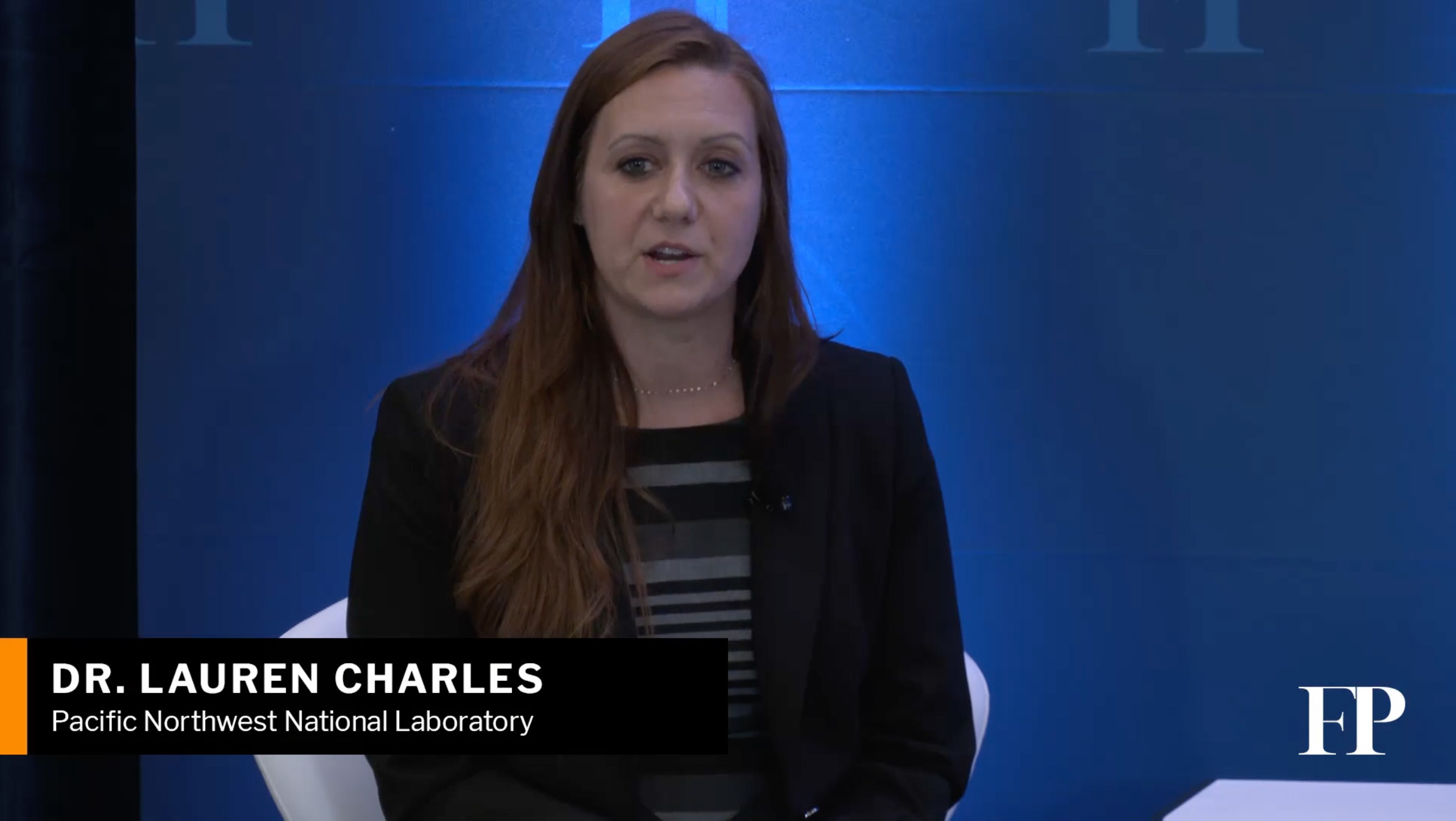Lauren Charles Participates in UN-Related Event
PNNL researcher joins pandemic-themed panel coinciding with 79th General Assembly

Lauren Charles was one of three expert speakers on the panel, “Outsmarting Outbreaks: Data, AI, and the Next Pandemic.” The global affairs media organization Foreign Policy sponsored the event.
(Photo by Andrea Starr | Pacific Northwest National Laboratory)
Lauren Charles, a chief data scientist at Pacific Northwest National Laboratory (PNNL), recently participated in a science-focused panel linked to the 79th session of the United Nations General Assembly.
The General Assembly, held in late September in New York, brought world leaders together to discuss several pressing issues, including global health challenges such as antimicrobial resistance, emerging infectious diseases, and climate changes.
Charles participated on the FP Health Forum @ UNGA79 panel, “Outsmarting Outbreaks: Data, AI, and the Next Pandemic.” The global affairs media organization Foreign Policy sponsored the event.

Charles spoke about preparedness for the next inevitable post-Covid pandemic outbreak.
“In an effort to predict, prevent, or detect disease outbreaks in humans, we need to take a holistic or One Health approach where we are not just waiting until humans get sick, but are actively monitoring changes in the environment, animals, humans, and society, including our food and agriculture,” said Charles, who was recently named an affiliate member of Global One Health Academy, a North Carolina State University-based initiative that is focused on combating infectious diseases. “There are multiple opportunities to detect signals of potential disease outbreaks, but we need to expand our surveillance to more and different types of data, which with our current advances in computational power and AI, we are finally able to do.”
Charles was joined on the panel by Louise Gresham, senior fellow global health security, at nonprofit PAX sapiens, and Ben Oppenheim, senior director at biotech company Ginkgo Bioworks.
Charles also addressed the importance of data sharing among public, medical, environmental, and animal health professionals and scientists who are often protective of their data and research findings.
“Modern technology can enable secure, restricted data sharing for real-time health situational awareness, prediction, and risk assessment,” Charles said. “However, there is a seeming lack of trust and hesitancy for collaboration among stakeholders along with a misunderstanding of data. Critical to success is bringing potential data sharers together to discuss its importance, the obstacles, what is available and useful, and what it means to collaborate. The more people get to know who and why they are sharing data as well as the benefits to themselves and the greater community, the more willing they are to contribute.”
Charles leads PNNL’s Artificial Intelligence-Driven One Health Security team, which focuses on disrupting health threats and their impacts. Leveraging PNNL’s leadership in operational artificial intelligence and One Health, the team is working at the local, regional, national, and global levels to achieve optimal health and national security results.
For decades, PNNL has leveraged its AI expertise to forecast real-world events. The Center for AI @PNNL, which is driving a research agenda that explores the foundations and emerging frontiers of AI, is combining capability development and applications to mission areas in science, security, and energy resilience. The Center for AI @PNNL is partnered with the Department of Energy Frontiers in Artificial Intelligence for Science, Security and Technology, an initiative to harness AI for scientific discovery, address energy challenges, advance national security, attract and build a talented workforce, and develop technical expertise necessary for AI governance.
Published: November 19, 2024